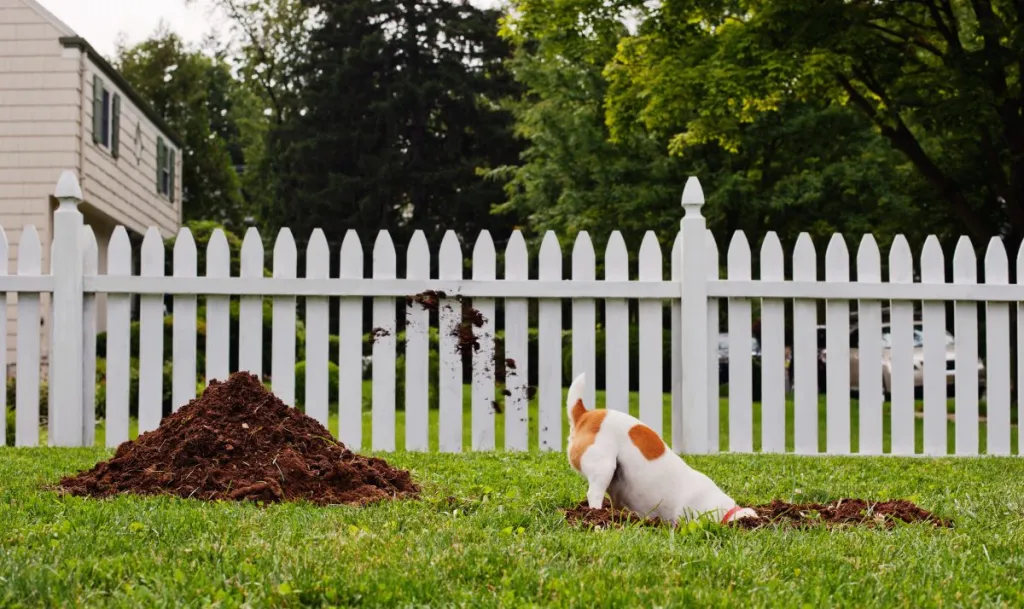Witnessing a dog digging a hole in the ground is an amazing site. The speed and skill of dogs that dig are truly impressive. They make it look easy, and they don’t seem to be the least bit tired afterward. Several things can trigger a desire to dig, and the behavior is more prominent in some breeds than others. So which dog breeds do the most digging? We’re going to take a deep dive into the wide world of this mind-boggling dog behavior.
Why dogs dig
In the wild, animals dig to create underground or below-ground sleeping areas to stay warm or cool off. Domestic dogs still have this instinct — some will even “dig” a spot on the carpet. Outdoors, these areas tend to be strategically located, perhaps under a tree if the dog is trying to stay cool.
Foraging for food is another instinctive reason to dig. Tasty roots buried in rich soil are food for our wild neighbors, and provide the opportunity for a great game of tug-of-war. You may find your dog doing the same thing — mostly for fun if he’s already had his dinner.
Speaking of fun, some dogs resort to digging behavior out of boredom. These dogs need more stimulation and interesting things to do.
Dog breeds that like to dig
Dogs bred for colder climates, like Huskies, Chows, Malamutes, and other Spitz-type dogs are known for this behavior. If you have one of these breeds, be sure to provide a shady rest area outdoors, and keep them inside on hot days.
Some dogs are natural diggers because they were bred for that behavior. Terriers (or “Feist” breeds) were originally developed by farmers in the South for hunting small prey, including underground animals like gophers and weasels. Bred with “snap” breeds like Whippets for speed, and with scent Hounds for the “nose,” a good “ratter” will burrow right into animal holes and tunnels to retrieve prey. True scent hounds, like Beagles, will dig to get out of an enclosure to chase above-ground prey like squirrels and foxes.
Working breeds like Shelties and Border Collies need focused play — and lots of it. If they don’t get enough, they may resort to digging.
How to prevent digging
Under-socialized dogs tend to be problem diggers too, as do dogs suffering from separation anxiety. So, put yourself in your dog’s paws and see if you can make their world more stimulating. Experts advise building a digging pit in the yard, bordered with bricks or rocks, and filled with soft soil and sand. Hide toys and treats inside to provide extra fun and satisfaction.
Burying treats and bones in “safe” places for retrieval later is also instinctual behavior. In the wild, it’s about making sure food is available when they need it. Caches buried underground are safer than meals left out in the open. Domestic dogs often make a game out of this behavior and may move their treasures to a different spot if you accidentally discover them.
Lastly, statistics show that unneutered dogs are more likely to dig their way out of an enclosure to find a female in heat. Solution: spay and neuter your pets. They will be happier, healthier, and more willing to stay at home.









